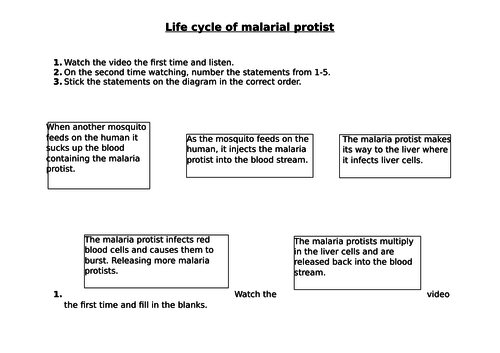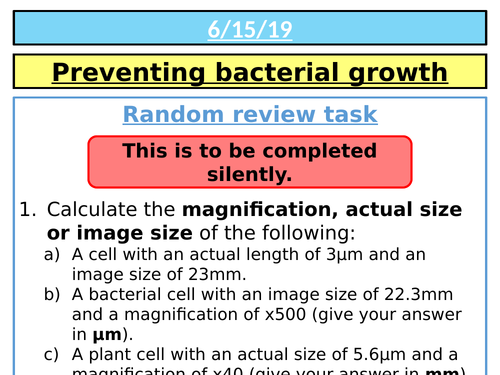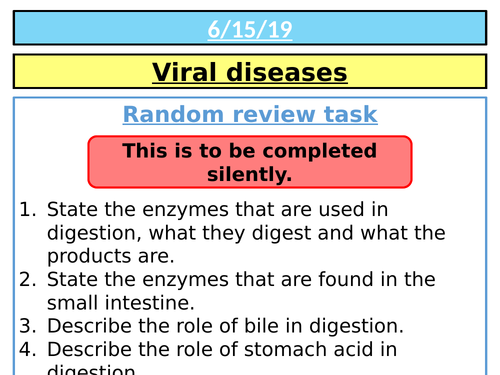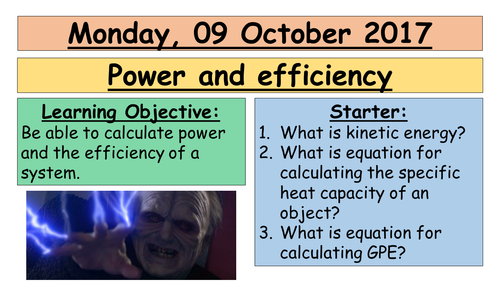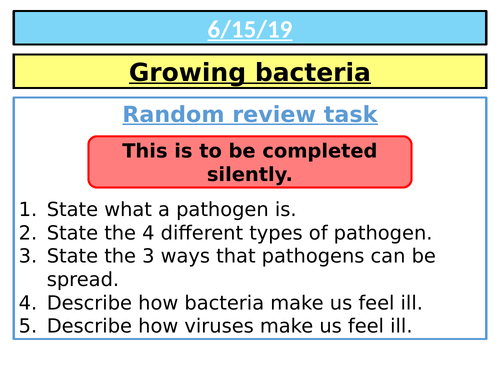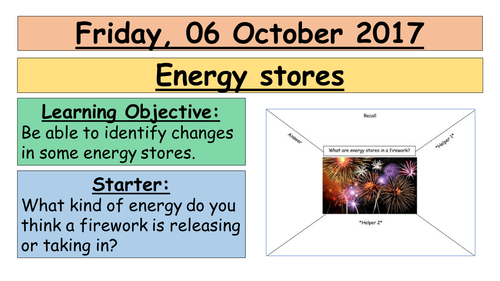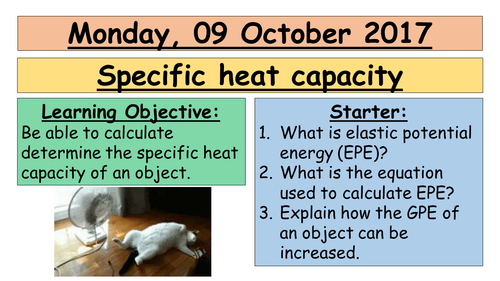
42Uploads
7k+Views
1k+Downloads
All resources

Critiquing evidence and sources
Seventh lesson in a the enquiry processes and safety lessons series. This lesson focuses on how to critique evidence and sources related to scientific literature allowing pupils to assess the reliability of a resource.

KS3 - Resistance
A fully resourced lesson covering resistance for KS3 pupils (years 7-8, but can be used for year 9).

KS3 - Magnets and magnetic fields
A fully resourced lesson covering magnets and magnetic fields for KS3 pupils (years 7-8) but can also be used to introduce magnetism for KS4 pupils.

KS3 - Static electricity
Fully resourced lesson covering static electricity for KS3 pupils (years 7-8, but can be used for year 9).

AQA GCSE (9-1) Physics - Wave calculations
A fully resourced lesson covering wave speed and wave period calculations.

AQA GCSE (9-1) Physics - Nature & properties of waves
Fully resourced lesson covering the nature and of properties of waves (the first lesson in the Waves topic).

AQA GCSE (9-1) Physics - Vectors & scalars, contact & non-contact forces
Fully resourced lesson that covers the basics of forces for the first lesson in the forces topic for GCSE Physics (AQA).

KS3 - Constructing circuits
A fully resourced lesson that covers how to construct circuits including an extended writing question. The extended writing question can be peer marked by students through teacher modelling/using the model answer as a WAGOLL.

KS3 - Series and parallel circuits
A fully resourced lesson covering series and parallel circuits for KS3, but can also be used for GCSE.

KS3 - Circuit components and current
Fully resourced lesson covering circuit components and current for KS3 pupils (years 7-8, but can be used for year 9).

KS3 - Potential difference
A resourced lesson covering potential difference for KS3 pupils (years 7-8, but can be used for year 9).

AQA GCSE 9-1 - Malaria (Protist disease)
This lesson has been planned for a low-middle attaining GCSE group, can be easily differentiated up for high attaining groups. The Malaria life cycle activity is differentiated for all levels - but can be edited depending on your group. The preview pictures distort what the resources look like.

AQA GCSE (9-1) Biology (Triple) - Preventing bacterial growth
The lesson is in line with B5.4 (Kerboodle scheme of work).
This is an opportunity for pupils to look at their bacteria slides ; describe and explain the differences between antiseptics, disinfectants and antibiotics; calculate the number of bacteria in a colony; analyze and compare zones of inhibition on a bacteria plate.

AQA GCSE (9-1) Biology - Viral diseases
The lesson is in line with B5.6 (Kerboodle scheme of work).
This lesson covers how viruses infect and cause damage to organisms; information regarding measles, HIV and tobacco mosaic virus(information sheet attached. Depending on group ability there is a whiteboard quiz, level 1-4 question sheet, level 5-9 question sheet.

AQA GCSE (9-1) - Power and efficiency
The lesson covers power and efficiency and has differentiated questions within the powerpoint. The higher level questions are on a hidden slide that can be printed out. The efficiency worksheet has a variety of questions for all levels.

AQA GCSE (9-1) Biology (Triple) - Culturing microorganisms
The lesson is in line with B5.4 (Kerboodle scheme of work).
This lesson outlines the needs that bacteria have with regards to growing effectively; RPA 2: investigate the effect of antiseptics or antibiotics on bacterial growth using agar plates and measuring zones of inhibition; calculating zones of inhibition.

AQA GCSE (9-1) - Kinetic and gravitational potential energy
The powerpoint matches with the worksheet. There are kinetic energy questions on a hidden powerpoint slide that can be printed off. Do not spend very long on them as there are also GPE questions to cover as well.

AQA GCSE (9-1) - Energy stores
The lesson is all provided on the powerpoint slides. A sheet for less able pupils can be made easily for pupils to add in information.

AQA GCSE (9-1) - Specific heat capacity
Lessons covering specific heat capacity, there is a video and questions covering the success criteria.

AQA GCSE (9-1) - Electromagnetism and solenoids
This lesson covers specification number: 6.7.2.1 of the AQA Combined Trilogy course.












